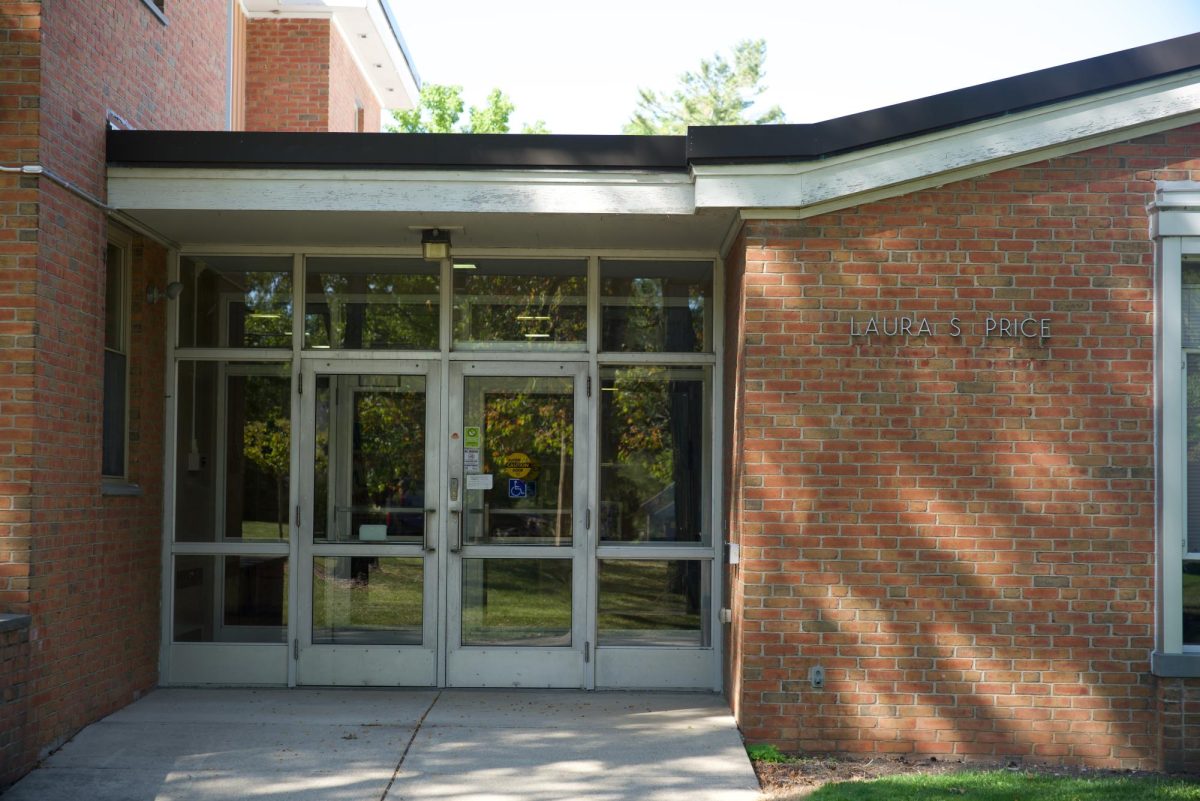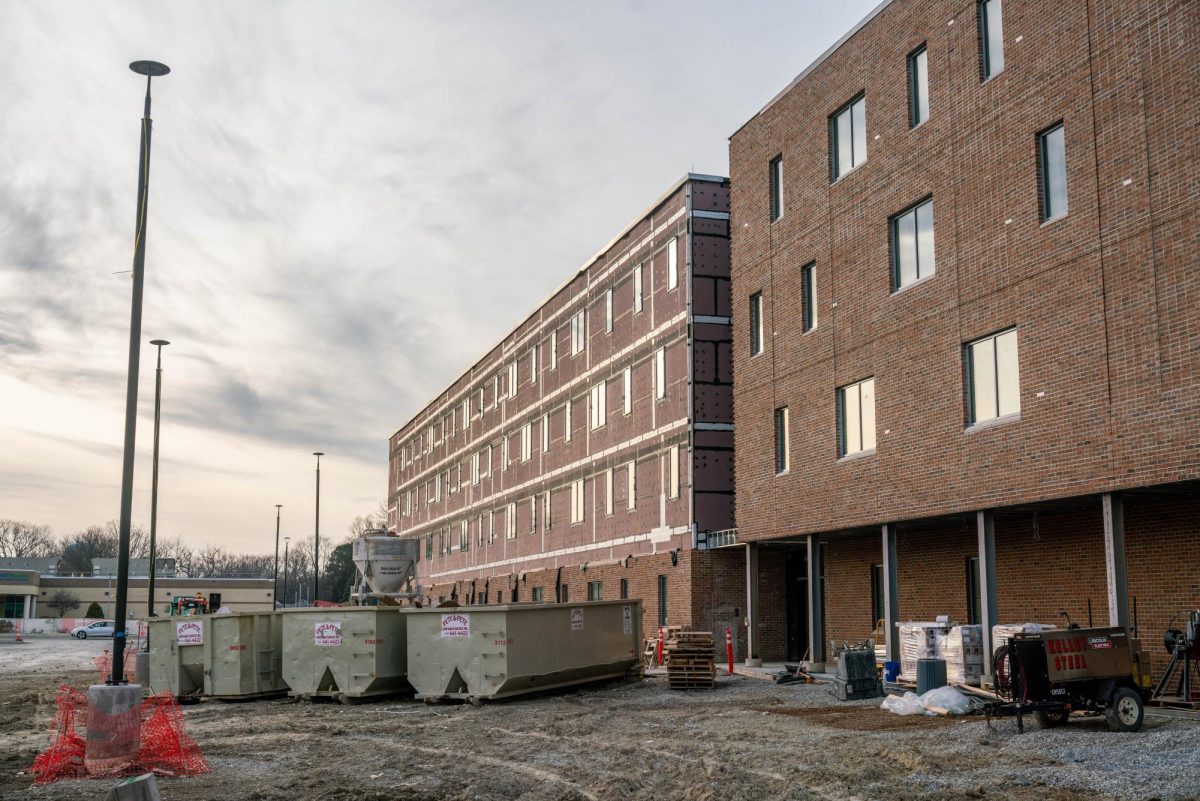Price House Mothballed
Price House, which was one of Oberlin College’s five first-year residence halls, did not reopen this semester. The dorm has instead been set as a potential location for renovation.
According to Assistant Vice President and Dean of Residence Life and Auxiliary Services Mark Zeno, this was possible because of the lower enrollment of students in the class of 2028, which has allowed the College to house all students this year without needing to utilize Price.
While the dorm is not being used to house students, the space is temporarily being used for a small graduate program in the Conservatory.
“We have faculty from the Con teaching instrumental maintenance,” Zeno said. “It worked out really well because then the [College] didn’t have to rent off campus space.”
The apartment in the dorm is also being used as an emergency space for students who face any unexpected issues in their own house or dorm.
According to Zeno, now that Price is not in normal use, the College will begin identifying and discussing renovation ideas for the dorm. Ideally, renovations in the Harvey, Kade, and Price Houses would mark the beginning of a potential 13 to 15 year renovation plan.
“[The plan] would really be [to] look at the most critical needs spaces right now that need to be addressed, start taking those [buildings] offline, do a full assessment,” Zeno said. “That’s where you bring in groups to come in and say, ‘Is it salvageable?’ If it’s salvageable, how do we renovate it now to kind of bring it up to today’s standards? Or is it cheaper just to wipe it out and start over again?”
Oberlin Moves Further Away From Physical ID Cards
Starting this year, physical ID cards will only be available to those with extenuating circumstances. This could include lack of access to a smartphone or recurring trouble operating mobile IDs.
“Our tag is: we are mobile first,” Jennifer Carman, manager of the Oberlin ID Card Office, said. “If you have a phone that works with the mobile ID, we ask and encourage you to get the mobile ID. The physical ID, we only do under certain circumstances.”
Mobile ID allows students to unlock doors, scan into dining halls, and provide identification from their phones through the Transact eAccounts app.
This switch to mobile credentials began in 2021 as part of a broader increase of mobile technology on campus, including the switch to mobile ordering at several dining locations on campus.
“For security reasons, we like mobile better,” Carman said. “It’s much more secure, it’s much easier to manage, and it’s much harder to copy. And for sustainability, … nobody wants to kill the planet. It’s another means to limit production.”
If students have trouble setting up or operating mobile IDs on their phones, they can contact the ID card office to troubleshoot or request a physical card. Questions regarding IDs are dealt with on a case-by-case basis, in order to address the specific needs of the student.
SIP Brings Air Conditioning To Select Buildings and Geothermal Heating Across Campus
Oberlin’s Sustainable Infrastructure Program is finishing phase four, its final construction phase. Over the summer, the College extended distribution lines for heating and cooling to Carnegie Building, Bosworth Hall, Asia House, Allen Memorial Art Museum, Hall Auditorium, Hall Annex, and the Clarence Ward Art Library; upgraded fiber optic and fire protection, as well as the mechanical and electrical systems, of those buildings; and completed the drilling of the 850 wells in the geothermal well field.
The College is now in the process of backfilling and seeding the geothermal well field in order to have it available for athletics again, renovating the Central Heating Plant, and preparing for installation of the air source heat pumps.
Most residence halls are connected to the geothermal heating system, however Oberlin Student Cooperative Association buildings, some of the outlying buildings, like Johnson House, and some Village Housing locations, are not. Additionally, not all connected residence halls have air conditioning.
According to Chris Norman, senior director of energy and sustainability, if your room has a fan coil unit, then you have air conditioning. More information on this can be found on the OES webpage.
“I would encourage everyone to refer to the new webpage OES created for sustainable energy management,” Norman wrote in an email to the Review. “The radiators and fan coil units (depending on the equipment in the building) need to be clear about 12 inches all around, to be optimal for the room conditions. If a room is too hot or too cold, occupants are encouraged to make sure their fan coil unit or radiator is clear, put in a work order using Top Desk, and then talk to their building manager or [Resident Assistant].”
Students should not use space heaters, which will disrupt the system.
“The conversion over to the geothermal heat pump system is a transformational project on campus,” Norman wrote. “We all play a part in its success. Learning how to best live in our spaces and reporting issues in a timely fashion are vital to help us improve the system as we learn to use it. We will achieve carbon neutrality and sustain it by working together. This achievement is setting the example for other campuses around the country.”









